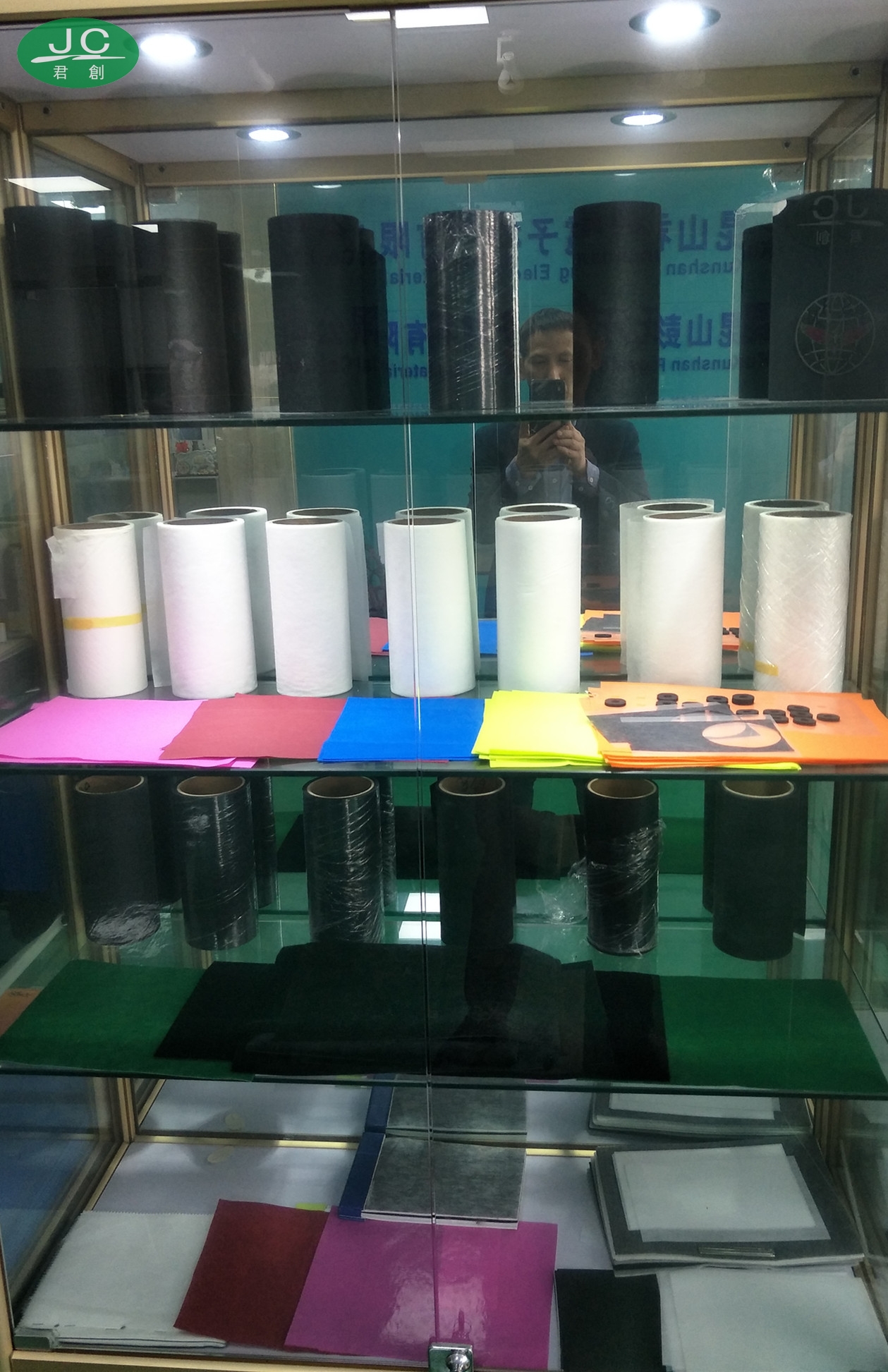- Product name:濟(jì)源Dotted nonwoven
- Category:濟(jì)源Electronic nonwoven
- Online booking
- Detailed introduction
Polyester nonwoven
Non-woven fabric (English name: Non Woven Fabric or Nonwoven cloth), also known as non-woven fabric, is made of oriented or random fibers. It is a new generation of environmentally friendly materials, which are moisture-proof, breathable, flexible, light, non-combustible and easy to decompose. It is non-toxic, non-irritating, rich in color, low in price and recyclable. For example, polypropylene (pp material) pellets are used as raw materials, which are produced by high-temperature melting, spinning, paving, hot pressing and continuous one-step process. It is called a cloth because it has the appearance and some properties of the cloth.
Non-woven fabric (English name: Non Woven), also known as non-woven fabric, is made of oriented or random fibers. It is a new generation of environmentally friendly materials. It is moisture-proof, breathable, flexible, light, non-flammable, easy to decompose, non-toxic. Irritating, colorful, inexpensive, and recyclable. For example, polypropylene (pp material) pellets are used as raw materials, which are produced by high-temperature melting, spinning, paving, hot pressing and continuous one-step process. It is called a cloth because it has the appearance and some properties of the cloth.
The difference between PP and PET nonwovens
The first is the difference in raw materials: PP refers to polypropylene, that is, polypropylene; PET refers to polyester, that is, polyethylene terephthalate.
Secondly, the two kinds of non-woven fabrics have great differences in application, but they can be substituted for each other in some aspects. It's just a difference in performance.
In addition, in the way of production and processing, the two are the same and different. Different processing methods determine the final application in most cases. Relatively speaking, PET is a bit high-end and expensive.
PET polyester nonwovens have:
First, the stability is better than polypropylene non-woven fabric
Mainly manifested in: strong, wear-resistant and other properties. Because polyester non-woven fabrics use special raw materials, they are taken out by advanced imported equipment and complicated and scientific processing technology, which has far exceeded the technical content and requirements of polypropylene non-woven fabrics.
Second, heat resistance is better than polypropylene non-woven fabric
Polypropylene non-woven fabric has obvious heat shrinkage. According to the survey, when the temperature reaches 140 °C, there is obvious shrinkage, while the maximum temperature of polyester non-woven fabric can reach about 230 °C, which has obvious characteristics compared with polypropylene non-woven fabric. .
Third, the anti-aging cycle is higher than polypropylene non-woven fabric
Polyester non-woven fabric is made of polyester, which is resistant to insects, abrasion and UV. The above characteristics are higher than polypropylene non-woven fabric.
Fourth, has good breathability
Compared with polypropylene and other non-woven fabrics, polyester non-woven fabrics have excellent properties such as no water absorption, no water contact, and strong gas permeability.
Characteristics
Because it is a fabric that does not require spinning woven fabric, only the woven short fibers or filaments are oriented or randomly stretched to form a web structure, and then reinforced by mechanical, thermal bonding or chemical methods.
Instead of interlacing and braiding the yarns one by one, the fibers are bonded directly together by physical means, so when you get the sticky name in your clothes, you will find that It is impossible to draw a single thread. Nonwoven fabric breaks through the traditional textile principle, and has the characteristics of short process flow, fast production rate, high output, low cost, wide application and many raw materials.
Material characteristics
Non-woven fabric characteristics
Non-woven fabric is a kind of non-woven fabric, which directly uses high polymer chips, short fibers or filaments to pass the fibers through airflow or mechanical netting, and then through hydroentanglement, needle punching, or hot rolling reinforcement, and finally finishing. Formed non-woven fabric. The new fiber product with soft, breathable and flat structure has the advantages of no lint formation, strong, durable, silky softness, also a kind of reinforcing material, and also a cotton feeling, compared with cotton, non-woven The cloth bag is easy to form and is cheap to make.
3. Water-repellent, breathable: polypropylene slices do not absorb water, water content is zero, the finished product has good water repellency, consists of 100% fiber with porosity, good gas permeability, easy to keep the cloth dry and easy to wash.
4. Non-toxic, non-irritating: The product is produced in accordance with FDA food grade raw materials, does not contain other chemical components, has stable performance, is non-toxic, has no odor, and does not irritate the skin.
5. Antibacterial and anti-chemical agents: Polypropylene is a chemically blunt substance, which is free of insects and can isolate the bacteria and insects in the liquid. Antibacterial, alkali corrosion, and finished products do not affect the strength due to erosion.
6. Antibacterial. The product has water-extracting properties, is not moldy, and can isolate the bacteria and insects in the liquid, and is not mildewed.
7. Good physical properties. It is made by directly spinning polypropylene into a mesh, and the strength of the product is better than that of the general staple fiber product, the strength is non-directional, and the longitudinal and transverse strengths are similar.
8. In terms of environmental protection, the raw material of most of the non-woven fabrics currently used is polypropylene, and the raw material of the plastic bags is polyethylene. Although the two substances have similar names, the chemical structure is quite different. The chemical molecular structure of polyethylene has considerable stability and is extremely difficult to degrade. Therefore, it takes 300 years for the plastic bag to be decomposed. The chemical structure of polypropylene is not strong, and the molecular chain can be easily broken, so that it can be effectively degraded. And in the non-toxic form into the next environmental cycle, a non-woven shopping bag can be completely decomposed within 90 days. Moreover, the non-woven shopping bag can be reused more than 10 times, and the environmental pollution degree after disposal is only 10% of the plastic bag.
This article URL:http://hytyg.cn/en/product/705.html
Key words:
Previous:濟(jì)源Dotted nonwoven
Next:None
 Welcome to Kunshan Junchuang Electronic Materials Co., Ltd.!
Welcome to Kunshan Junchuang Electronic Materials Co., Ltd.!




